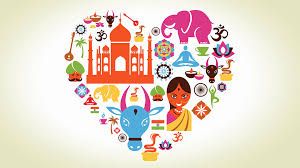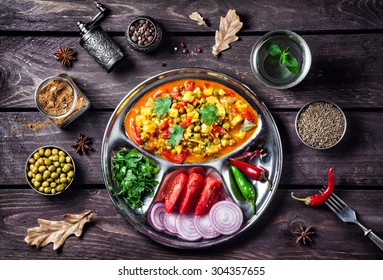Indian Customs And Traditions
Jun 24, 2019 • 23 views
Indian Culture and traditions are known acrossthe world. The culture of India is very diverse and unique. Indian Culture has several uniquecustoms and traditions. Ancient Indian scriptures and texts have dictated the way of lifein India for thousands of years.

Indian customs and traditions
Namaste is one of the most popular Indian customs and is not only restricted to Indian territories only. TheNamaste ornamaskar is one of the forms of greeting each other traditionally, mentioned in the Vedas. Greeting each other by Namaste, is basically a way of saying 'May our minds meet'. Namaste is folding palms and placing it before the chest. It also signifies reduction of one's ego in the presence of the other.
India is a country of diverse religions and groups. There are many festivals like Diwali, Holi, Makar Sankranti, Eid, Christmas, good Friday, Baisakhi, birthdays of Sikh Gurus, Mahavir Jayanti, Buddha's birthday on Buddha Poornima, and many more.
Joint family systems are only prevalent in India, where entire family lives together.
In Hindu culture, fasts are observed on religious occasion, or on a particular day of week for a particular God or Goddess associated with that day. Fasts are a way to express gratitude towards the gods and goddesses. It is widely believed by observing fasts, people deprive them of the basic necessity and punish themselves to cleanse off their sins, done by them. The rules and regulations of a fast are in accordance with the particular occasion.
Cow in the Indian culture, is considered to be a Holy animal. Cow is worshipped as a maternal figure. Emphasis is laid on the need to protect and care of cows in the Vedic scriptures. Cows are a source of milk. In rural India, cow dung is used as an energy efficient source of fuel. Killing the cow or consuming cow meat is considered to be a sin. Indian culture, by respecting cows, expresses its gratitude towards her who gives back a lot to the people.
Most temples are located along magnetic wave lines of the earth, which helps in maximizing the available positive energy. Going to the temple often helps in having a positive mind and fills a person with positive energies. It is also essential to take off footwear before entering temples so as to keep them cleansed and its environment sanctified.
Indian culture consists of various signs and symbols with various meanings. Like swastika, is the symbol of Lord Ganesh, who is the remover of obstacles. The arms of swastika have various meanings, like it signifies the four Vedas, four constellations or the basic aims of humans.
In India, there is a saying “Atithi Devo Bhavah”, which means, the guest is equivalent to god. This Sanskrit verse was taken from the Hindu scriptures which later became a part of the 'Code of conduct for Hindu society since the guest has always been of supreme importance in the culture of India.
Indian women often wear sari, which adheres to religious etiquette and is very comfortable to wear. The men wear Kurta Pyjama and sherwani for ceremonies.
There are various dance forms being practiced in India, and each of the form represents the particular from which they originate. Bharatanatyam from Tamil Nadu, Kathakali from Kerala, Kathak from North, West and Central India, Mohiniyattam from Kerala, Kuchipudi from Andhra Pradesh, Oddisi from Odisha, Manipuri from Manipur, Sattriya from Assam are classical dance forms mentioned in the Hindu Sanskrit Text, Natyashastra.
Indian food and cuisine are an integral part of Indian culture, and is also the key factor of India's popularity worldwide. The style of cooking varies from region to region. Indian food is known for its extensive use of spices and herbs. Almost every region is known for a signature dish or ingredient. The staple food of the country, however, consists mostly of rice, wheat and Bengal gram (Chana). Some of the people are vegetarian and some are non-vegetarian.

Indian culture is known for its ‘Unity in Diversity’, it consists of various dance forms, variety of food, various festivals and religion. Indian society and culture have always been to be well mannered, polite, respectful towards others, and has always believed in progressing together.
